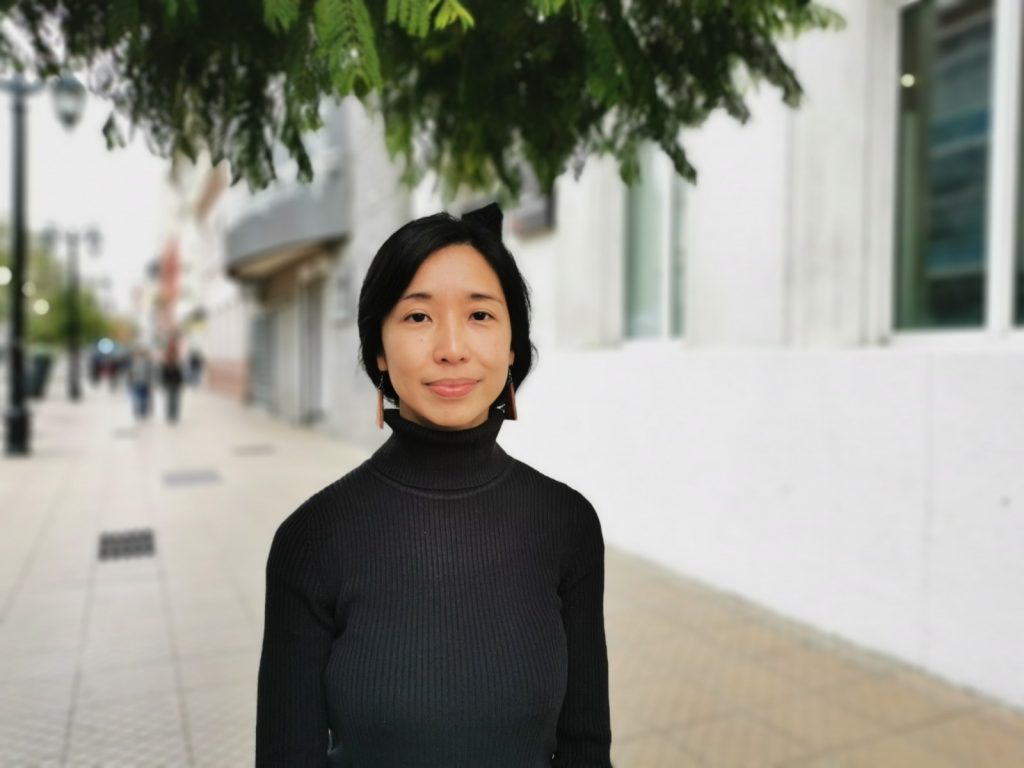Millennium Nucleus ICLAC is pleased to announce the appointment of researcher Carol Chan as the new Alternate Director. Her arrival at the position represents a significant strengthening of the qualitative and sociocultural approach within the research team, as well as a boost to interdisciplinary collaboration and academic integration of new institutions, such as Universidad Diego Portales, which, with this appointment, joins as a new host institution of the nucleus.
PhD in Cultural Anthropology from the University of Pittsburgh, Master's in Gender, Women and Sexuality Studies from the same university, and Anthropologist from the University of Melbourne. Dr. Chan's areas of interest are migration, gender dynamics, inter-ethnic/group coexistence, moral economy, and human trafficking. The geographical focuses of her research are Southeast Asia (Indonesia, Philippines), Latin America (Chile), and China. Below, Dr. Chan shares her vision and expectations in this new role.
– Tell us a bit about how you assume this new role as Alternate Director and Principal Investigator of ICLAC and what it means to you.
A: I appreciate my colleagues' confidence in appointing me Alternate Director. I assume this role with the hope of being able to strengthen the qualitative study of the topic in the team and interdisciplinary collaboration. Additionally, as the School of Anthropology at Universidad Diego Portales is relatively new, it was important for me to be able to include Anthropology students from Universidad Diego Portales in ICLAC as interns.
– From your perspective as an anthropologist, how do you believe this approach can enrich and deepen understanding of China-Latin America relations, or help understand the ways in which Chinese culture connects with Chilean/Latin American reality?
A: In public discussions and media coverage about China-Latin America relations, this phenomenon is usually discussed more at the regional or national levels; that is, understanding relations in economic and political terms. Anthropology offers a qualitative and sociocultural approach, invites us to examine and study China-Latin America or China-Chile relations as social relationships that take shape at the everyday level, for example, in the Meiggs neighborhood between neighbors, between vendors and regular customers, between workers and managers or bosses. I think the anthropological focus on cultural and human diversity forces us to see that "China" materializes and manifests in different forms in Chile and the region, and that the Chinese migrant population is heterogeneous: it consists of people from different generations, they come from different provinces of China and speak different languages among themselves. Moreover, due to China's historical presence in the Latin American region, a significant number of migrants of Chinese descent do not have Chinese nationality, but come from Venezuela, Argentina, Paraguay, Panama, or Ecuador. That diversity and social complexity are interesting to consider, because they share similar experiences of coming from families that have small family businesses and being in this complex position between relative privilege and prejudice in these countries, including Chile.
– About your Fondecyt Chilean Asian Project: could you tell us more about the main objectives of this research, what type of stories or realities it seeks to make visible, and how this project connects or dialogues with ICLAC's research lines and objectives?
A: The project seeks to understand the experiences and attitudes of Chilean citizens of Asian descent (Chinese, Japanese, and Korean) toward belonging, exclusion, and citizenship. We want to know their family and personal stories of racism, discrimination, and inclusion, in addition to examining how these experiences have changed (or not) over time; for example, if there are differences or similarities between generations. We also want to know their visions and demands for political representation, recognition, and visibility in Chile, and the possibilities and challenges of collective organization. The focus on the experiences of Chileans who are of Chinese descent has been relevant for ICLAC, so we have collaborated in organizing talks and seminars not only in academic spaces but also outside, such as the seminar at the Regional Museum of Iquique and the Asian Culture Fair in Providencia. Several Chinese descendants who have participated in the Chilean Asian Project have also enrolled in ICLAC's free virtual course; this invitation and opportunity to learn more about China and relations between both countries have attracted much attention from them.
– Finally, what is your vision regarding the impact and contribution that ICLAC can make to a greater understanding of China-Latin America relations?
A: I think ICLAC has a unique and privileged perspective to contribute to the development of this knowledge, not only from an interdisciplinary social sciences approach, but also with a multi-scalar view. We understand that China-Latin America relations consist of economic, political, social, and cultural relations that are highly complex. On one hand, I think we are already contributing to a more informed and balanced public discussion on relevant topics. We hope that the data, analysis, and policy briefsfrom the project can contribute to the development of relevant policies for the country. On the other hand, the project's historical perspective has contributed to deepening the long history of Chinese presence in Chile to contextualize some contemporary tensions and dynamics in China-Chile relations. Studying the phenomenon of "global China" from Chile and Latin America contributes to academic and theoretical discussions in social sciences about racialization, sinicization, and power structures, among other topics, precisely because it has been a little-explored topic compared to other contexts.

